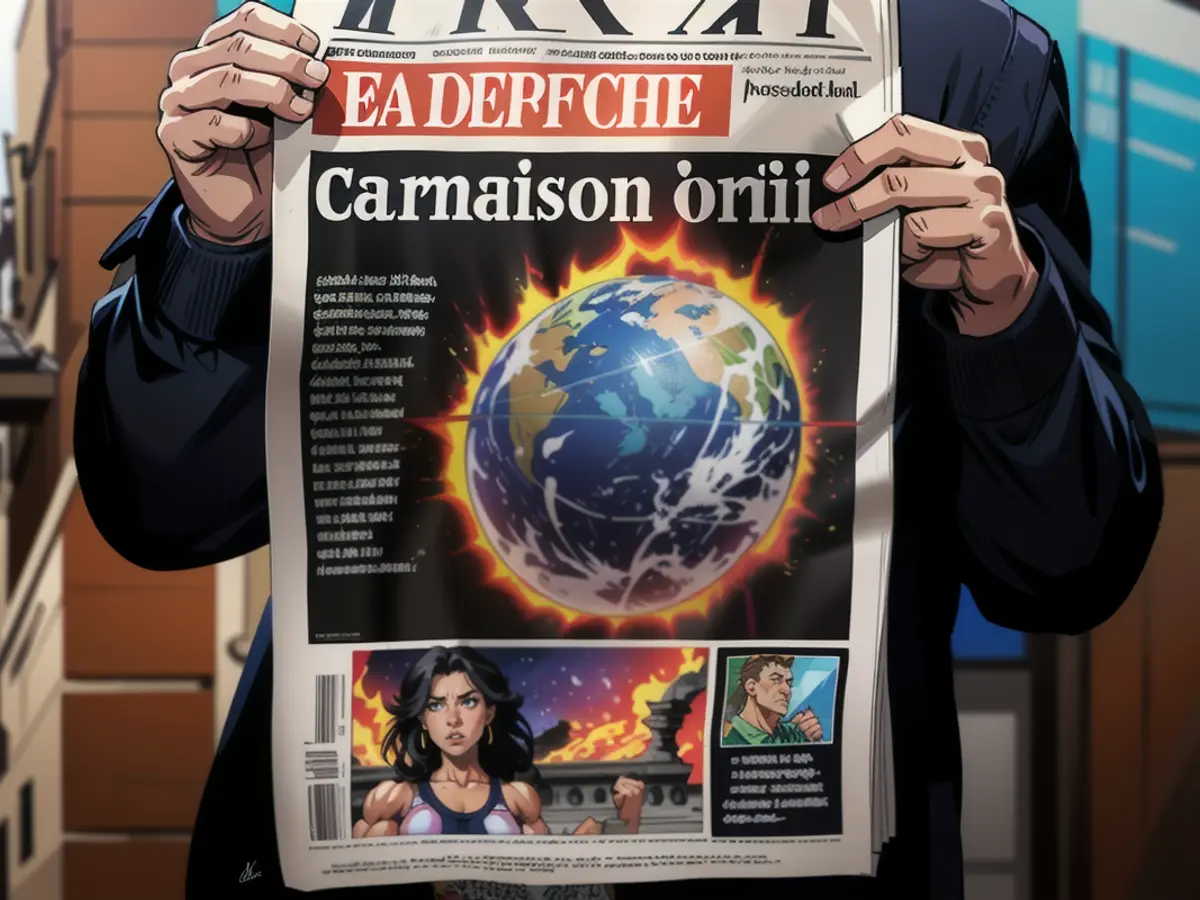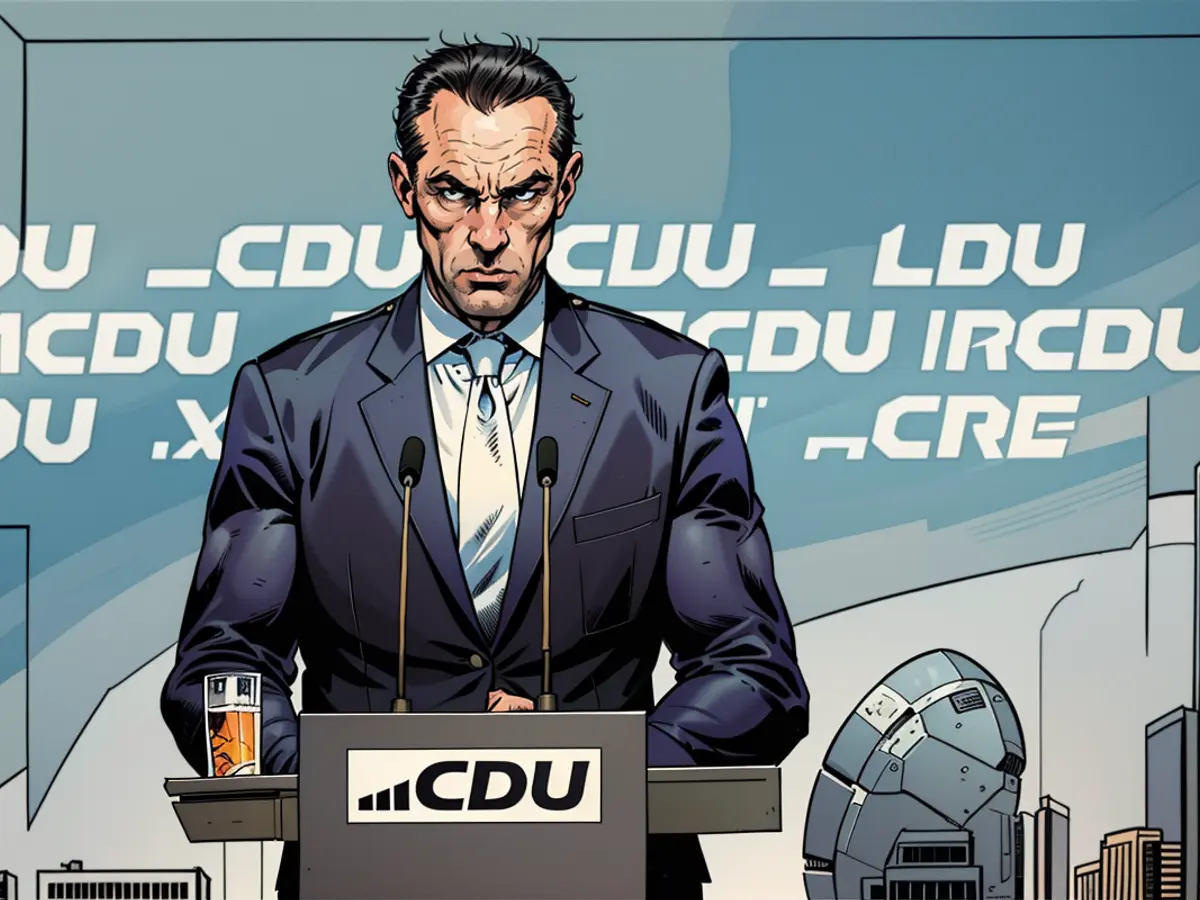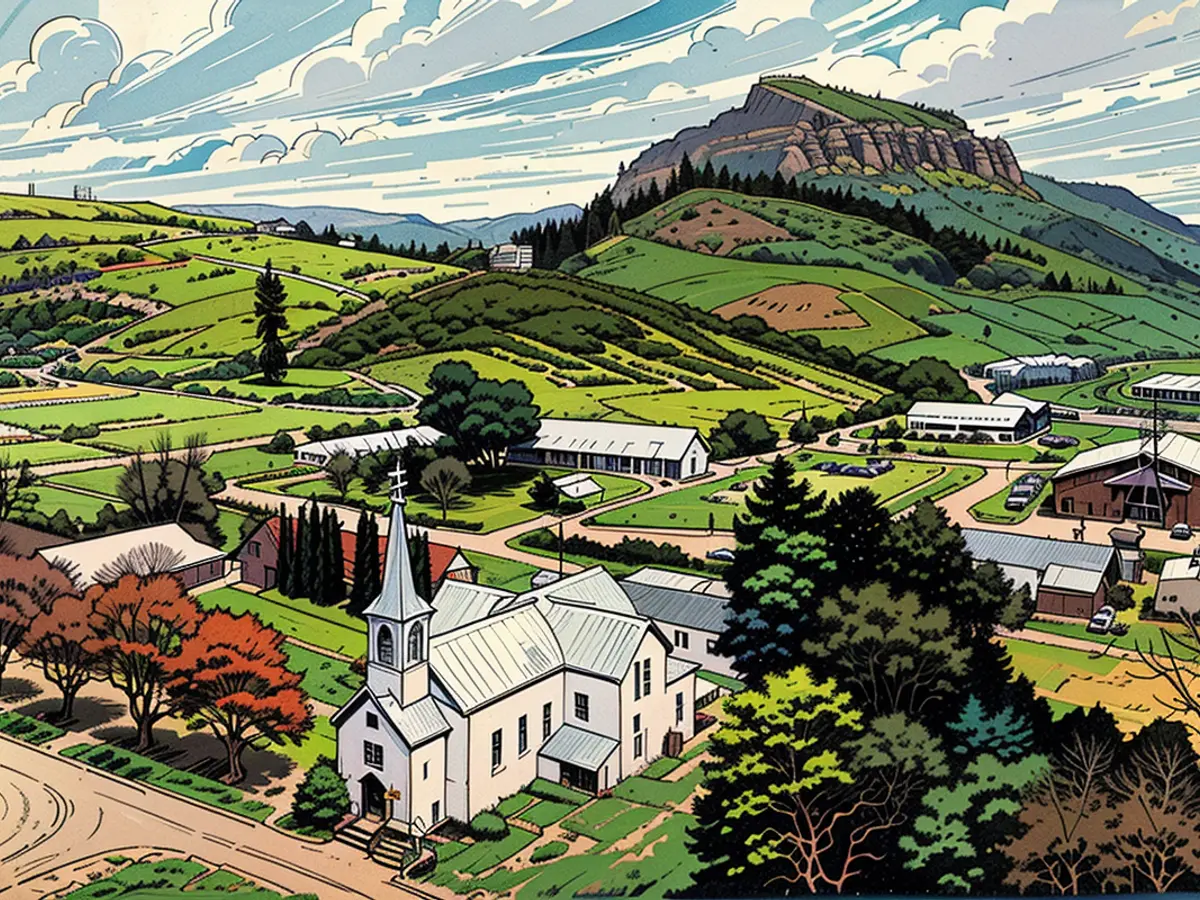An excessive number of journalists with an attitude towards climate protection are biasing their reporting.
The world of climate change is filled with terms that can be socially explosive, leaving people feeling neglected, misled, or condescended. Media outlets play a role in this, as their job is to help bridge the gap between scientists and ordinary people. However, the media often sensationalize and dramatize the battles around these issues, said Stephan Russ-Mohl, a media scientist in ntv's "Climate Lab."
ntv: If you had to grade the media, like ntv, what would it be?
Russ-Mohl: It's hard to give a serious answer to that because each medium has its own context. But generally, it's not good. Not necessarily in your case, but for many reputable media, such as Süddeutsche Zeitung, Der Spiegel, or public broadcasters. This is because editorial offices are often ill-equipped to handle the complexities of our world and rely on science editors who have become scarce. Considering topics like Covid or nuclear energy, expert knowledge is crucial for accurate information and meaningful discussions.
In "Climate Lab," we faced a different issue—readers asked us if it was too specific and complicated. When we realized that people who don't generally engage with these topics are being ignored, we were concerned.
The challenge for journalists is to act as translators, conveying the complex knowledge of experts to the general public. While they may not possess the same level of expertise, their role is to bridge the gap so people understand that these issues are important and relevant to them.
A common criticism is that media are populated by those who align with the Greens and the Left. Is this also an issue?
I don't use the term "green" but can confirm from surveys that there is a cultural hegemony in the left-green area among established media. Especially among the young journalists at ARD, few lean toward the CDU, CSU, or FDP. As a former journalist who worked in the media, I can attest that this is a problem.
Sometimes journalists who lean towards the left-green spectrum can present other parties and perspectives fairly. But this isn't always the case.
While some media, like Springer-Verlag, maintain a conservative stance, the cultural hegemony in the left-green sector is prevalent in public broadcasting and most other traditional print and online media. Even the Frankfurter Allgemeine Zeitung, a respected newspaper, has shifted to the left.
Springer, as the most popular media company in Germany, is an exception. But the cultural hegemony can be observed in public broadcasting and most other major media, with left-leaning journalists dominating the conversation.
However, the situation has become more complicated with the ongoing heating debate. The tone doesn't seem to be tailored for the Green Party's liking.
It's clear that the Greens dislike the debate. But if, in a situation where our energy supply is in question, Robert Habeck doesn't push to ensure nuclear power plants can operate for a few more years, ignoring economic and scientific expertise to uphold the Green Party's longtime position ...
But we also know that nuclear power plant operators have privately expressed their opposition to extending operating times. They've asked the Ministry of Economics to take charge so they don't have to challenge the political leadership publicly.
I understand that the operators aren't eager to purchase new fuel rods and need to adjust to the new scenario. For me, nuclear energy is just one of many cases where it seems politicians are reacting unconventionally to change and not doing what's best for the common good. I'm not trying to discredit the importance of long-term climate protection, but politics should also be about swaying the masses.
The main hurdle is that climate change is frequently disregarded as a "green" issue. It's a scientific matter on which the majority of scientists concur.
The issue lies in the ineffectiveness of scientific communication. Many attempts are made. Today, all universities have well-equipped press offices and send out daily media releases. However, there's a scarcity of science journalists in these editorial offices capable of handling these reports adequately. And even if this does occur, as happened in your case, it's likely not reaching the general public but those within the bubble. The challenge is to reach those outside the bubble driving combustion engines, consuming meat, and not considering energy-efficient replacements for their heating.
How do we burst the bubble? As soon as terms like climate, CO2 emissions, or the 1.5-degree target appear in the headline, people tend to switch off or change the channel.
This shouldn't be unexpected given our attention-grabbing era. I recall when scientists initially discussed the impossibility of making climate change a journalistic and political issue due to its diffuse and complex nature. Additionally, you can't address it unless the US and China are on board. Furthermore, it's viewed as a Green Party issue with no influence. Considering this context, it's remarkable how successful we've been in bringing climate change into the public eye.
Have we already surpassed expectations in climate change, energy transition, and climate protection?
Yes, although some of this "extra" can be attributed to the need for journalists to dramatize and embellish for attention purposes in the battle against their competitors. As consumer interest builds, they recognize they're continually presented with doomsday scenarios, yet the world isn't coming to an end. This creates a credibility crisis that's been ongoing for several years. There's no easy way to overcome it. The best solution could involve news organizations explaining the media industry and their fallibility, and admitting that they don't have all the information. Similarly, scientists should admit that keeping up with the constant influx of information is very challenging even within their field of expertise. We reside in this complex reality, which should be made clear to the public, and communicated if one wishes to correct something.
Clara Pfeffer and Christian Herrmann interviewed Stephan Russ-Mohl. This discussion has been shortened and modified for clarity. To listen to the complete interview, visit the "Climate Lab" podcast.
Read also:
- Year of climate records: extreme is the new normal
- Precautionary arrests show Islamist terror threat
- UN vote urges Israel to ceasefire
- SPD rules out budget resolution before the end of the year
Source: www.ntv.de






